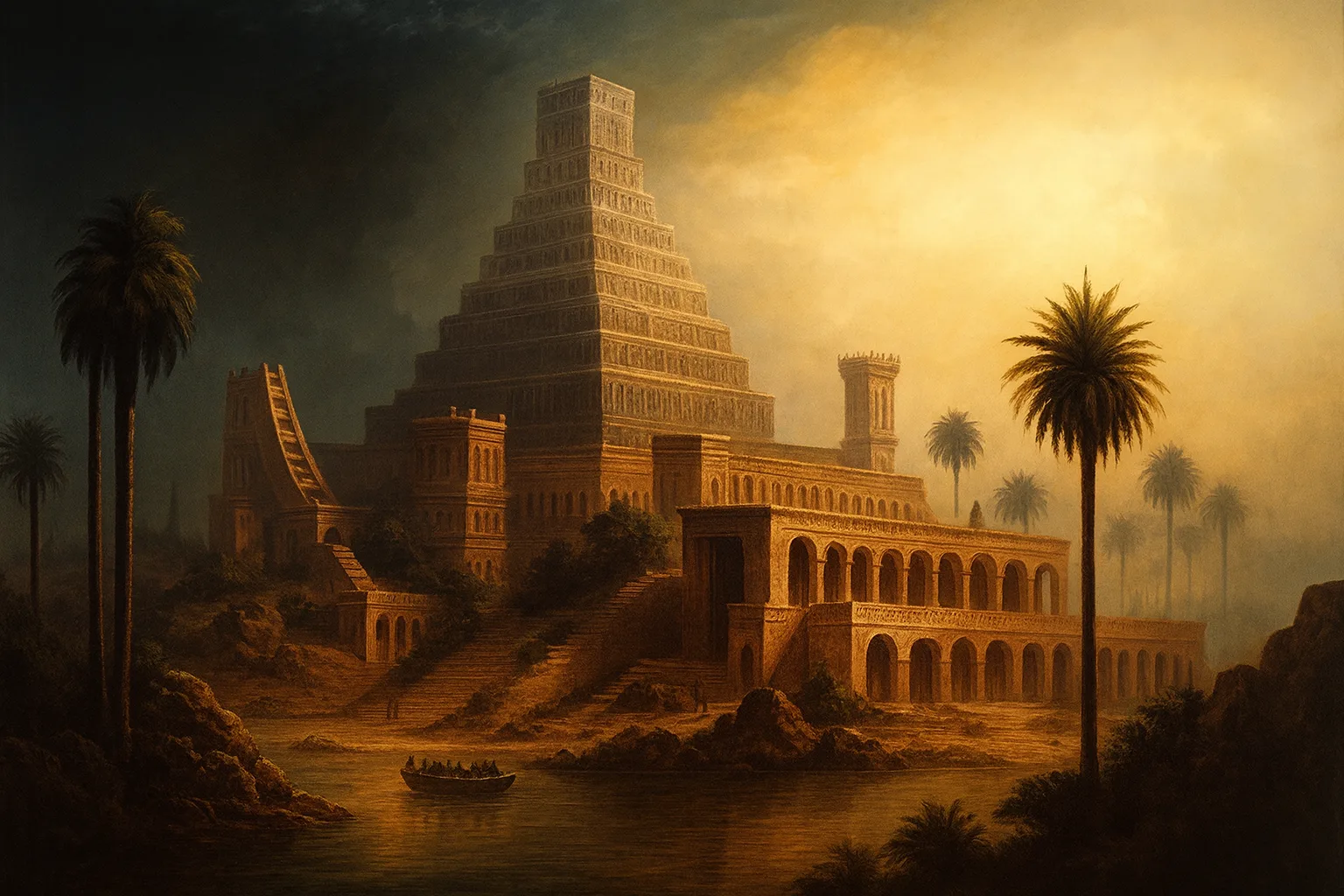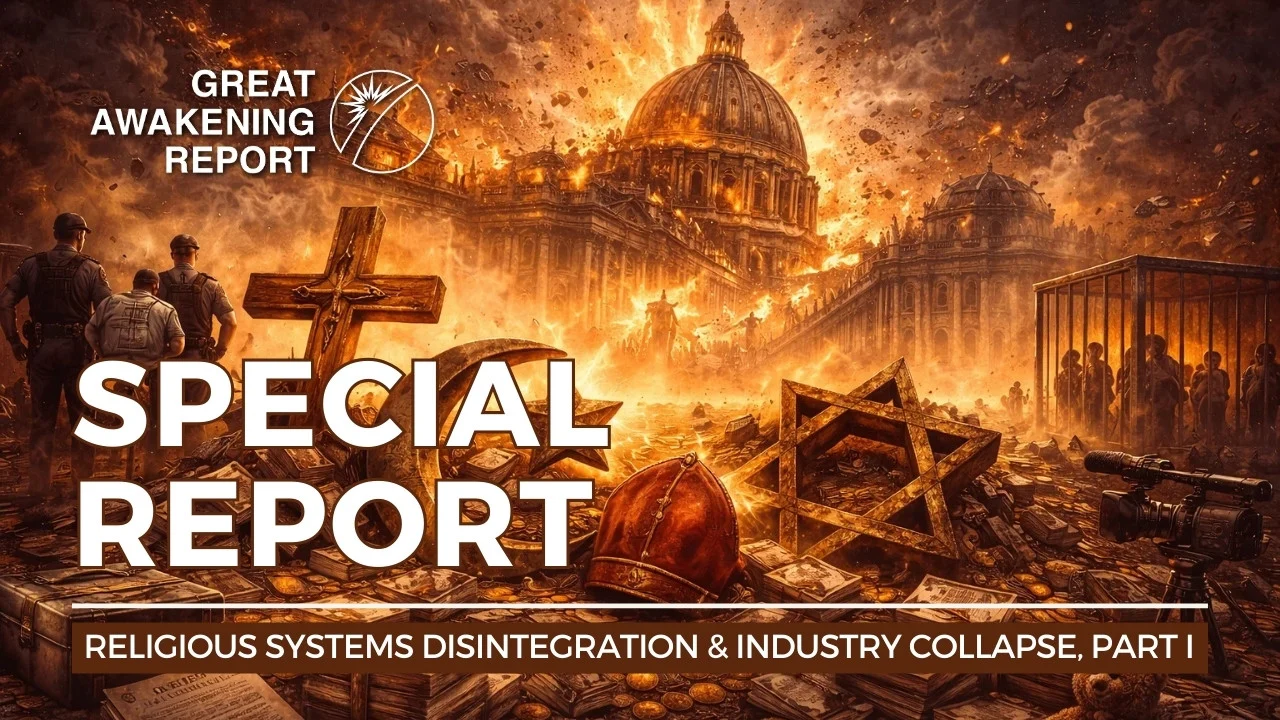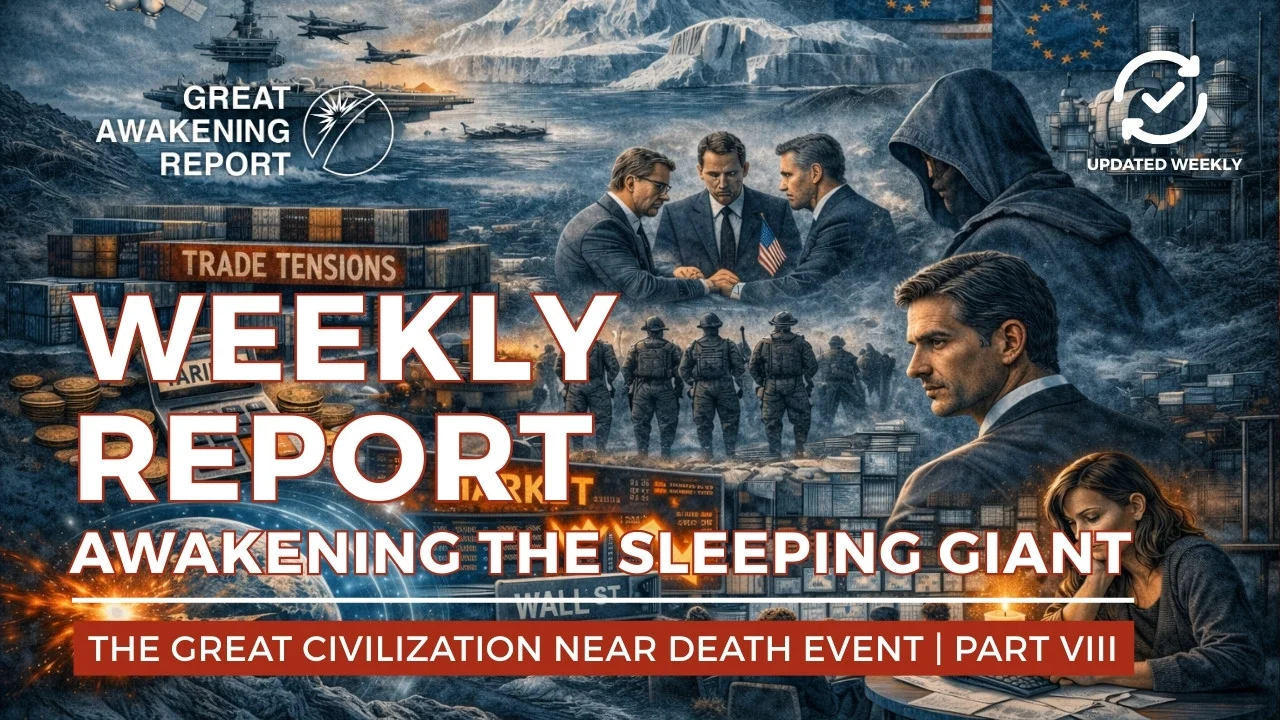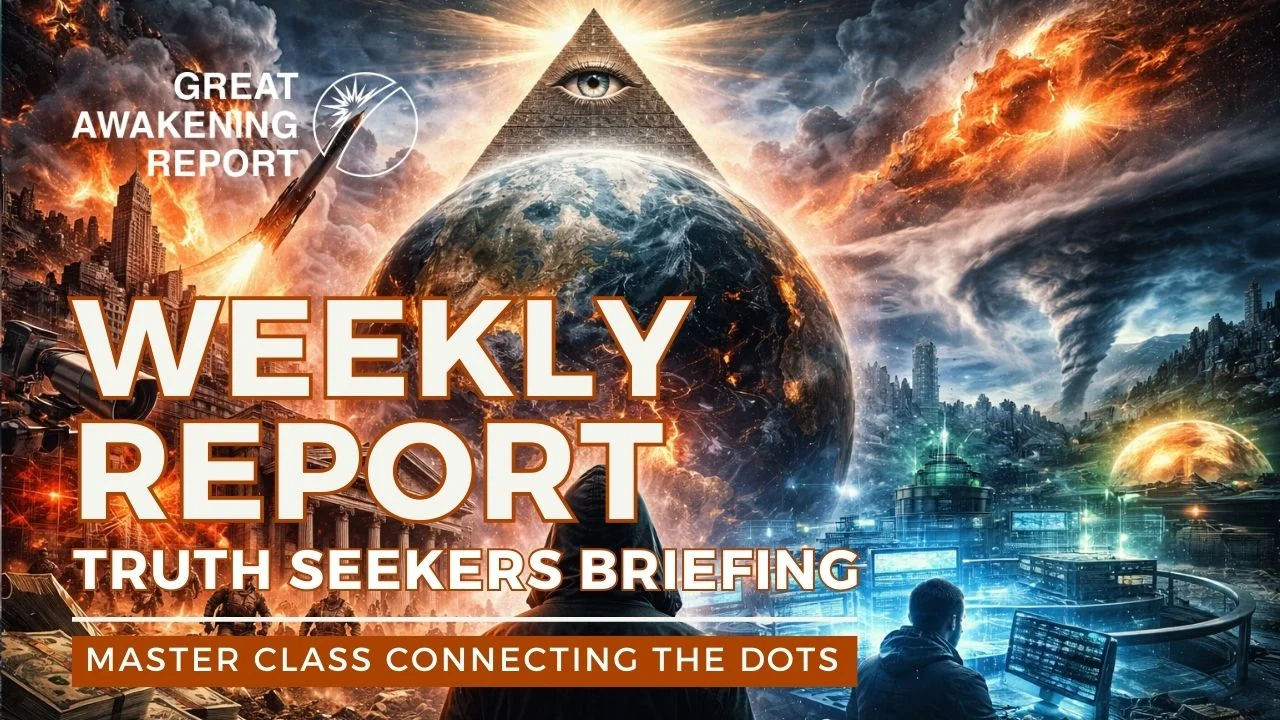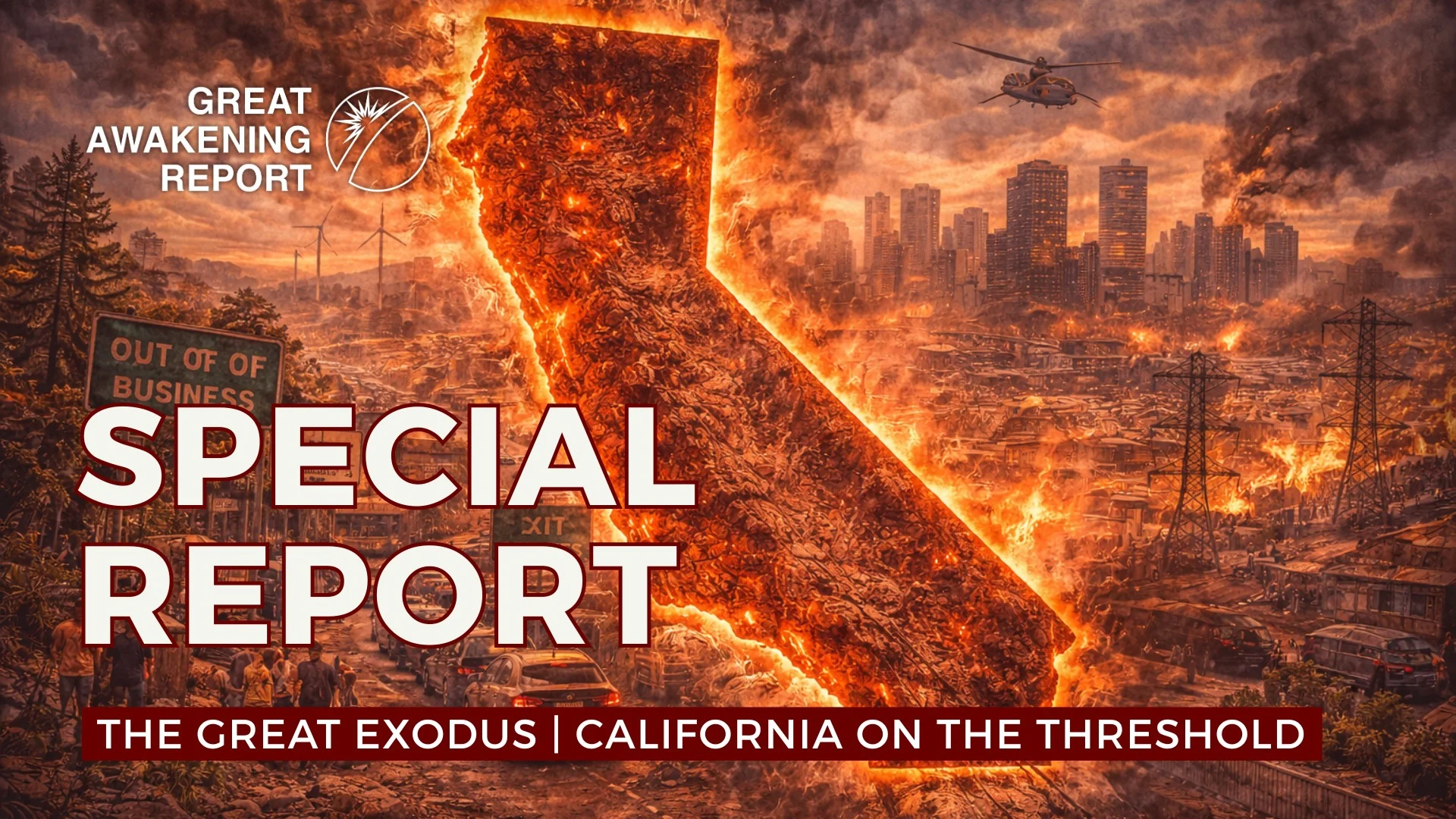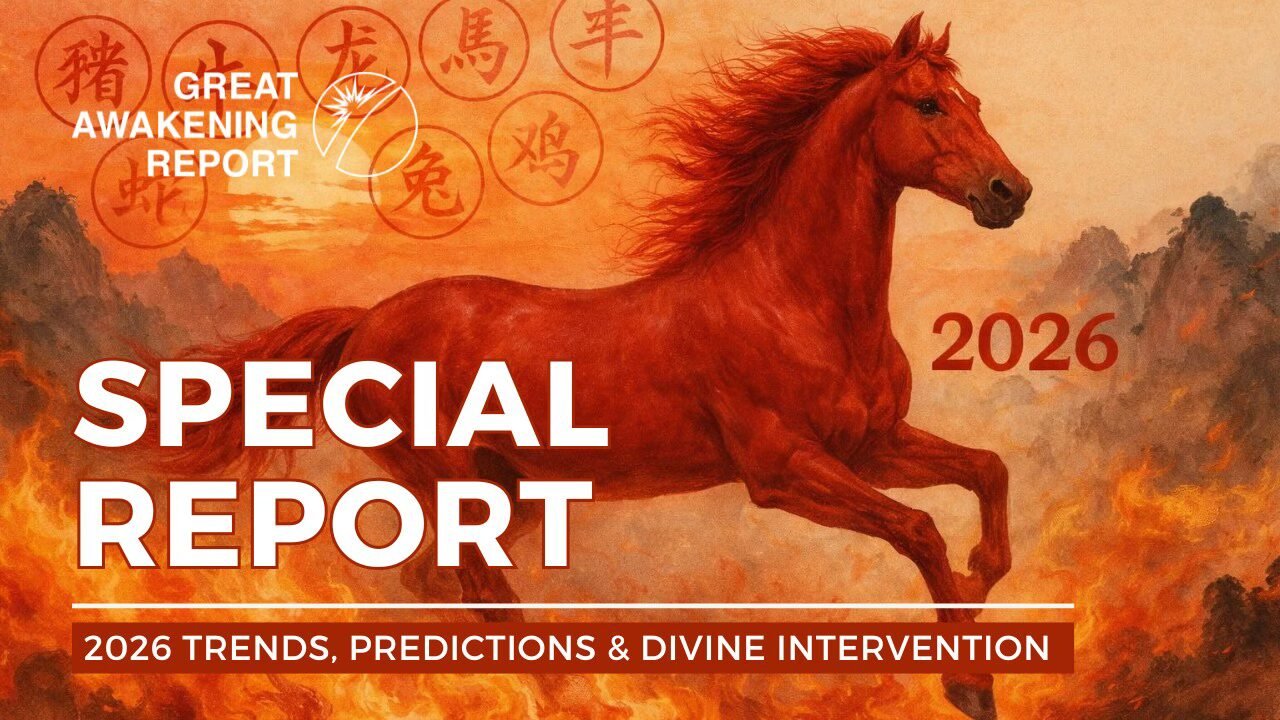Help Us Bypass Censorship. Share This.
Sign up to receive Our Weekly Briefing Newsletter
Begin your journey with weekly insights designed to expand awareness and ground you in truth. Our free tier gives you a powerful introduction without any commitment.
Introduction to Atlantis: Myth or Reality?
The legend of Atlantis, first introduced by Plato in his dialogues “Timaeus” and “Critias,” has fascinated scholars and enthusiasts for centuries. Described as a powerful and advanced civilization that ultimately fell out of favor with the gods and was submerged in the ocean, Atlantis has been interpreted in numerous ways throughout history.
Plato’s narrative portrays Atlantis as an economically and militarily might civilization that existed approximately 9,000 years before his time (circa 11,000 years ago). It was said to be located beyond the “Pillars of Hercules,” identified by many as the modern-day Strait of Gibraltar, and flourished on a sizable, idyllic island that boasted splendid architecture and vast resources. Despite its grandeur, the Atlanteans became arrogant and greedy, leading to their downfall when they were punished by divine forces, resulting in the island’s catastrophic sinking into the ocean.
Over the centuries, several theories have emerged regarding the actual existence or symbolic meaning of Atlantis. Some historians and archaeologists suggest that the story of Atlantis could have roots in real historical events, such as the volcanic eruption of Thera (modern Santorini) or the Minoan civilization’s decline, which experienced significant natural disasters. Others argue that Atlantis serves primarily as a philosophical allegory for Plato, symbolizing the moral and ethical decline of a society (Source: British Construction Industry Society).
In modern interpretations, Atlantis has been linked to various conspiracy theories and pseudoarchaeological claims, with some enthusiasts proposing new locations for the lost continent in places ranging from Antarctica to the Caribbean, often relying on interpretations of folklore and esoteric traditions (Source: Farm Progress). This eclectic mix of theories has kept the Atlantis narrative alive in popular culture, influencing literature, cinema, and even spiritual movements aimed at rediscovering lost wisdom.
As we delve deeper into the story of Atlantis, it becomes clear that its significance transcends mere myth or history. It reflects humanity’s enduring struggle with pride, resilience, and the quest for utopia.
Plato’s Account of Atlantis: The Primary Source
Plato’s account of Atlantis primarily resides in two dialogues: Timaeus and Critias. In these works, he narrates the story of a powerful civilization that existed about 9,000 years before his time. Atlantis was said to be located beyond the Pillars of Hercules, a region that modern scholars interpret as the Strait of Gibraltar, exhibiting advanced technology and culture. According to Plato, Atlantis was a large island featuring significant agricultural wealth and impressive architecture, dominated by a powerful military and an aristocratic society.
In Critias, Plato presents the story through a conversation between Socrates and other characters, emphasizing the narrative as a historical recount rather than a myth. The dialogue explores themes of hubris, the moral degeneration of society, and divine retribution. Atlantis, in its downfall, represented the consequences of moral failing, culminating in its catastrophic destruction as a result of divine displeasure.
Plato’s portrayal has profoundly shaped the perception of Atlantis as a utopian civilization and has sparked centuries of speculation and exploration into its existence. The story captures the imagination of many, influencing various fields from literature to archaeology. Scholars debate the intent behind Plato’s narrative, considering it either a cautionary tale against imperialism or an allegory for ideal governance and societal structures (Source: ResearchGate).
The Atlantis narrative in Plato’s works continues to inspire countless interpretations and ongoing quests to uncover lost civilizations, keeping the lore of Atlantis alive in popular culture and academic discourse. For further insights into Plato’s philosophical contributions, you might explore other topics in the field such as his theories of ideal societies and justice.
Archaeological Evidence: Traces of an Advanced Civilization
Archaeological evidence suggests the presence of advanced ancient civilizations, echoing tales of mythical societies like Atlantis. Notable sites that have potentially revealed remnants of such advanced cultures include:
- Göbekli Tepe, Turkey: Often dubbed the world’s oldest temple, Göbekli Tepe is thought to predate Stonehenge by several millennia. The intricately carved megaliths, dating back to around 9600 BCE, indicate sophisticated architectural skills and social organization, challenging previously held notions of hunter-gatherer societies lacking complexity in their structures and rituals (Source: Smithsonian Magazine).
- Mohenjo-Daro, Pakistan: This ancient city was part of the Indus Valley Civilization and showcases advanced urban planning, including well-constructed drainage systems and standardized fired-brick buildings. These features illustrate a high degree of communal organization and social governance, reinforcing the idea that this culture possessed significant knowledge and capabilities in engineering and town planning (Source: World History Encyclopedia).
- Nazca Lines, Peru: The sprawling geometrical designs etched into the desert of Nazca have intrigued researchers for decades. These enormous geoglyphs, visible primarily from the air, suggest a profound understanding of astronomy and geography, supporting theories that these ancient peoples may have had advanced knowledge of navigation and rituals tied to celestial movements (Source: Britannica).
- Tiwanaku, Bolivia: This archaeological site exhibits structures that exhibit advanced stonework and hydraulic engineering. The precision of stone cutting and construction techniques is reminiscent of technologies not presumed to have existed in the pre-Columbian Americas, suggesting a potentially advanced civilization (Source: Ancient Origins).
- Atlantis: While debated, many believe that the concept of Atlantis, as described by Plato, may have roots in real civilizations that showcased advanced technology and societal structure before their downfall. Evidence suggests places like Santorini (Thera) may have influenced this narrative, reflecting catastrophic events leading to the disappearance of highly developed cultures and complex societies (Source: BBC).
These sites collectively contribute to the ongoing dialogue about the capabilities of ancient people and whether they possessed knowledge comparable to modern civilizations. Each discovery fuels interest in the mysteries of our historical past and the potential existence of lost civilizations.
Technological Marvels: What Advanced Civilizations Could Achieve?
Ancient civilizations may have been capable of remarkable technological innovations that parallel some of today’s advancements. For instance, irrigation technologies used by the Egyptians and Mesopotamians can be likened to modern smart irrigation systems that utilize data analytics to optimize water usage. These contemporary systems, such as those developed by Valley Irrigation, leverage AI to analyze field data and weather conditions, enabling farmers to make informed decisions about when to irrigate and fertilize their crops (Source: Farm Progress).
Moreover, ancient engineering feats like the construction of the Pyramids or aqueducts reflect an understanding of materials and construction techniques that were advanced for their time. Today’s applications of these principles can be seen in the sophisticated data management tools used in industries such as mining, exemplified by Sandvik’s Newtrax platform, which integrates automation and data management to improve operational reliability in challenging environments (Source: Australian Mining).
The study of historical records like those from civilizations in the Indus Valley illustrates an early grasp of urban planning and infrastructure that laid foundations for modern smart city concepts, where data-driven strategies enhance urban living conditions. By embracing historical insights, we can see how advanced civilizations may have tackled challenges similar to those we face today, using innovative solutions tailored to their contexts.
Cultural Insights: Religion, Art, and Society in Atlantis
The cultural fabric of Atlantis, often depicted in myth and legend, showcases an intricate blend of religion, art, and social structure. Religious practices in Atlantis were deeply tied to nature and celestial phenomena, with inhabitants believed to engage in rituals that honored deities associated with water and earth, reflecting their connection to the environment. This reverence is evidenced through archaeological findings in various advanced civilizations that followed, suggesting that Atlantean spirituality may have influenced subsequent religious practices across cultures.
Art in Atlantis was characterized by sophisticated craftsmanship and symbolism. The Atlanteans created magnificent structures adorned with intricate carvings and frescoes, which illustrated their myths, beliefs, and everyday life. Such artistic expressions played a significant role in societal cohesion and identity, as they not only served aesthetic purposes but also conveyed moral and philosophical messages. The artistry of Atlantis inspired later civilizations in the Mediterranean, particularly in Greece and Rome, where similar motifs in sculpture and architecture can be traced back to Atlantean influence.
Moreover, the societal structure of Atlantis has often been described as utopian, representing an advanced understanding of governance and community. Scholars propose that the societal ideals, including concepts of justice, harmony, and communal responsibility found in Atlantis, echoed through ages and left a mark on later societal models, including those of ancient Greece, which emphasized democratic principles and civic involvement.
Thus, the cultural aspects of Atlantis—from religious ideologies and artistic innovations to societal frameworks—could have shaped the foundational beliefs and practices of many following civilizations, bridging a legacy that transcended time and geography. For more insights into societal influences, see our article on the evolution of early civilizations.
Theories of Atlantis’ Demise: Catastrophes and Human Error
Theories concerning the demise of Atlantis often center around a combination of natural disasters and human errors, reflecting a complex web of potential causes with both environmental and societal implications.
One predominant theory suggests that Atlantis was devastated by catastrophic natural events, including earthquakes and tsunamis. Plato, the primary historical source on Atlantis, described it as a flourishing civilization that was suddenly swallowed by the sea in a single day and night of misfortune, possibly due to a massive volcanic eruption or seismic activity. Research indicates that ancient civilizations, including those in the Mediterranean, experienced significant geological instability, which may align with the mythical accounts of Atlantis’ downfall (Source: Frontiers in Earth Science).
Conversely, the human element is equally critical in these theories. Some scholars propose that the hubris and moral decline of Atlanteans led to their ruin, reflecting how societal miscalculations can precipitate disaster. This aligns with broader historical patterns, where civilizations have declined not only through external challenges but also through internal factors, such as corruption and poor governance. The story of Atlantis can thus serve as a cautionary tale about the fragility of society when it strays from moral and ethical principles (Source: JSTOR).
In summary, the fall of Atlantis is theorized to have stemmed from a lethal mix of nature’s wrath and human folly. As we delve deeper into understanding our past, these lessons resonate, reminding us of the need for sustainable practices and ethical governance to avoid repeating history’s mistakes.
Modern Interpretations: The Legacy of Atlantis in Popular Culture
The legend of Atlantis has woven its way into modern culture, influencing a multitude of artistic expressions, from literature to film, and even inspiring philosophical discourses. While Plato initially introduced Atlantis as a cautionary tale about a mighty civilization that fell from grace, contemporary interpretations have expanded this narrative into various genres.
Literature has seen a notable resurgence of Atlantis-themed works, notably in science fiction and fantasy. Authors often utilize the myth to explore themes of lost knowledge, leading to books like The Atlantis Gene by A.G. Riddle, which combines genetic engineering and ancient history into a thrilling narrative. Additionally, works like “The Lost City of Z,” which delve into the idea of lost civilizations, reveal society’s fascination with what lies beneath the surface of history, questioning the realities of human achievement and errors alike.
In film, Atlantis remains a powerful motif. Movies such as Disney’s Atlantis: The Lost Empire offer a vibrant, albeit fictional, depiction of a technologically advanced society, merging adventure with moral lessons about environmental stewardship and the perils of colonialism. More serious films like “The Deep” explore themes of human greed and the consequences of uncivilized pursuits, reflecting society’s ongoing moral inquiries inspired by the Atlantis myth.
Moreover, television series often incorporate Atlantis into their narratives, with shows such as Stargate Atlantis promoting a blend of science fiction and mythology explored in a contemporary context. These adaptations foster a longing for exploration and curiosity about ancient cultures, resonating with audiences who yearn for deeper understanding of humanity’s potential and pitfalls.
In addition to visual media, the myth of Atlantis has found its way into video games, where players can explore its underwater landscapes and engage in epic quests related to the civilization’s philosophies and technologies. Titles like Assassin’s Creed: Odyssey integrate these themes, allowing players to ponder the lore while experiencing immersive worlds.
Culturally, the fascination with Atlantis reflects broader societal questions about sustainability, technological advancement, and the impact of civilization on nature. As crises like climate change loom on the horizon, the legacy of Atlantis serves as a reminder of the fragility of human achievements and the importance of learning from the past to avoid repeating history’s mistakes. The narrative continues to evolve but remains rooted in that original cautionary tale, providing a canvas for contemporary reflections on civilization and morality.
The enduring legacy of Atlantis showcases humanity’s quest for knowledge, marking a connection between the ancient past and future aspirations. For more insights into how myths adapt through time, consider exploring articles such as “Great Awakening Report – December 2018” or “Great Awakening Report – September 2018”.
Conclusion: Lessons from Atlantis for Today’s World
The tale of Atlantis serves as a poignant reminder of the risks associated with hubris, environmental negligence, and the pursuit of unchecked technological advancement. This ancient narrative emphasizes the necessity for societies to maintain a balance between progress and responsibility. For modern civilizations, key lessons from Atlantis include:
- Environmental Stewardship: Atlantis is often depicted as a society that fell victim to its own exploitation of natural resources. Today’s world faces similar challenges with climate change and biodiversity loss. Sustainable practices and environmental conservation are essential to prevent societal collapse. The Dodo bird’s extinction, largely due to human exploitation, illustrates the consequences of failing to respect nature’s limits (Source: Greenpeace).
- Caution Against Hubris: The Atlanteans’ pride ultimately led to their downfall. In contemporary contexts, overconfidence in technology, such as artificial intelligence and genetic engineering, poses significant risks. The failure of financial institutions during the 2008 crisis highlighted how overreliance on complex financial instruments can precipitate disaster (Source: ResearchGate).
- Social Equity and Justice: Atlantis is portrayed as a civilization that prioritized the elite over the common people. Modern societies must strive to ensure that advancements benefit all, addressing wealth disparities while fostering equitable access to resources and opportunities. The COVID-19 pandemic revealed stark inequalities in healthcare access, underscoring the need for systemic change (Source: WHO).
- Community Resilience: The story of Atlantis reminds us of the importance of community and collective responsibility. Building resilient systems—be it in government, economy, or society—can help navigate future challenges. The shift towards community-driven approaches in food production during the pandemic signifies a step towards resilience (Source: Food and Farm Chat).
The lessons from Atlantis remain ever-relevant as we navigate the complexities of modern existence, providing a framework for a sustainable and just future. Embracing these insights can guide current and future civilizations toward a brighter path, preventing the repetition of past mistakes.
Sources
Help Us Bypass Censorship. Share This.
Have questions?
At Great Awakening Report, we are dedicated to supporting your journey toward truth and enlightenment through our specialized Coaching and Consulting services.
Coaching Services: Our coaching programs are designed to guide you through personal awakening and transformation. We offer personalized sessions that focus on expanding consciousness, uncovering hidden truths, and fostering spiritual growth. Our experienced coaches provide the tools and insights necessary to navigate your path with clarity and confidence.
Consulting Services: For organizations and individuals seeking deeper understanding and strategic guidance, our consulting services offer expert analysis and solutions. We delve into areas such as global transitions, alternative news insights, and consciousness studies to provide comprehensive strategies tailored to your unique objectives.
Embark on a transformative journey with our Coaching and Consulting services, and unlock your highest potential. To learn more and schedule a session, visit our Coaching and Consulting pages.
Thank you
Thank you to our subscribers and readers for your continued support and dedication to truth and awakening. Your encouragement, engagement, and belief in our mission make everything we do possible. Together, we are expanding awareness and helping illuminate the path forward.
If you would like to further support the Great Awakening team and our ongoing efforts to share insight, knowledge, and truth, you can DONATE HERE.
With deep gratitude,
– Great Awakening Team
DISCLAIMER: All statements, claims, views and opinions that appear anywhere on this site, whether stated as theories or absolute facts, are always presented by The Great Awakening Report (GAR) as unverified—and should be personally fact checked and discerned by you, the reader.Any opinions or statements herein presented are not necessarily promoted, endorsed, or agreed to by GAR, those who work with GAR, or those who read or subscribe to GAR.Any belief or conclusion gleaned from content on this site is solely the responsibility of you the reader to substantiate.Any actions taken by those who read material on this site are solely the responsibility of the acting party.You are encouraged to think for yourself and do your own research.Nothing on this site is meant to be believed without question or personal appraisal.
COPYRIGHT DISCLAIMER: Citation of articles and authors in this report does not imply ownership. Works and images presented here fall under Fair Use Section 107 and are used for commentary on globally significant newsworthy events. Under Section 107 of the Copyright Act 1976, allowance is made for fair use for purposes such as criticism, comment, news reporting, teaching, scholarship, and research.
COMMUNITY GUIDELINES DISCLAIMER: The points of view and purpose of this video is not to bully or harass anybody, but rather share that opinion and thoughts with other like-minded individuals curious about the subject.

